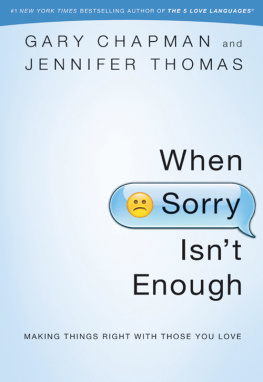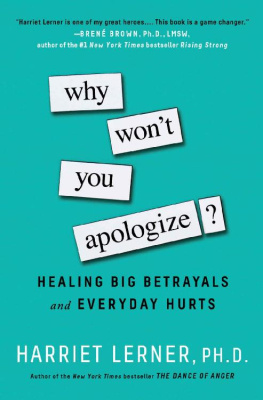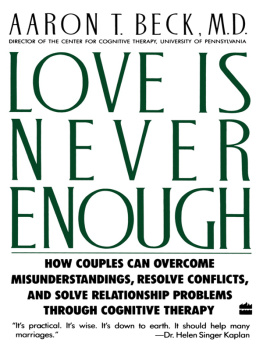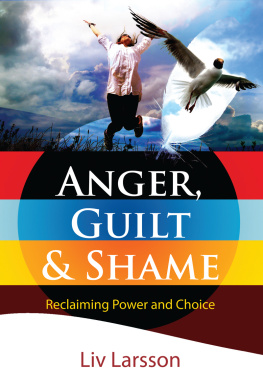On Apology
Aaron Lazare


Oxford University Press, Inc., publishes works that
further Oxford University's objective of excellence
in research, scholarship, and education.
Oxford New York
Auckland Cape Town Dar es Salaam Hong Kong Karachi
Kuala Lumpur Madrid Melbourne Mexico City Nairobi
New Delhi Shanghai Taipei Toronto
With offices in
Argentina Austria Brazil Chile Czech Republic France Greece
Guatemala Hungary Italy Japan Poland Portugal Singapore
South Korea Switzerland Thailand Turkey Ukraine Vietnam
Copyright 2004 by Aaron Lazare
First published by Oxford University Press, Inc., 2004
198 Madison Avenue, New York, New York 10016
www.oup.com
First issued as an Oxford University Press paperback, 2005
ISBN-13: 978-0-19-518911-7 ISBN-10: 0-19-518911-6
Oxford is a registered trademark of Oxford University Press
All rights reserved. No part of this publication may be reproduced,
stored in a retrieval system, or transmitted, in any form or by any means,
electronic, mechanical, photocopying, recording, or otherwise,
without the prior permission of Oxford University Press.
The Library of Congress has cataloged the cloth edition as follows:
Lazare, Aaron, 1936
On apology/Aaron Lazare.
p. cm. Includes bibliographical references and index.
ISBN-13: 978-0-19-517343-7 ISBN-10: 0-19-517343-0
1. Apologizing. I. Title.
BF575.A75L39 2004
Design: planettheo.com
9 8 7 6 5 4 3 2 1
Printed in the United States of America on acid-free paper
To my wife, Louise,
and to the memory of my parents,
H. Benjamin Lazare and Anne Lazare
Contents
ONE
The Growing Importance of Apologies
TWO
The Paradox of Apologies
THREE
How Apologies Heal
FOUR
Acknowledging the Offense
FIVE
Remorse, Explanations, and Reparation
SIX
Why People Apologize
SEVEN
Why People Do Not Apologize
EIGHT
The Timing of Apologies
NINE
Delayed Apologies
TEN
Negotiating Apologies
ELEVEN
Apology and Forgiveness
TWELVE
Afterword: The Future of Apologies
Acknowledgments
There is an oft-quoted African proverb: It takes a village to raise a child. I found that it also takes a village to write a book. My village is the faculty and staff of the medical school campus at the University of Massachusetts, Worcester, my family, and friends outside the university.
I learned about apology on a daily basis from my wife Louise and my children Jacqueline (deceased), Sam, Sarah, Tom, Hien, Robert, David, and Naomi. My grandchildren, particularly Gabriel, taught me about the importance of apology in children. Sarah contributed to discussions of the law and apology.
From the very beginning of my interest in apology, over ten years ago, a psychologist colleague of mine, William Vogel, Ph.D., met with me regularly to encourage me, read and criticize my manuscripts, and assure me of the importance of my task. He brought to our discussions a vast knowledge of history. Marjorie Clay, Ph.D., director of ethics, did a masterful job of editing in the broadest sense. She understood what I was trying to communicate and did not rest until she felt I got it right. I believe I became a better writer under her tutelage. Both Bill and Marjorie ensured that I wrote logically and with precision. Both criticized my failings directly, with no holds barred, but with sensitivity and caring. Both are intellectuals who are committed to contributing to society. I will be forever grateful that they saw my work on apology as worthy of their tireless energy and their generosity of spirit.
Administrator Sandra Beling worked tirelessly beyond 9-5, and always in good spirits, to find original source material, review chapters, share ideas, and assemble the manuscript for publication. Administrative assistants Linda Boria and Diana Coppolino read manuscripts, offered ideas about apologies, and organized my work life to make it possible to complete the book while working in my role as the chancellor/dean. Paula MacDonald worked diligently as a research assistant.
Numerous people generously offered their advice, recommendations, encouragement, and personal apology stories. These people were coworkers, friends, relatives, and friends of my children: Mark Shelton, Andrea Badrigian, Lanny Hilgar, Robert Nemeth, Lee Hammel, Manuel Zax, Albert and Linda Sherman, Paul Appelbaum, Mai Lan Rogoff, Salah M. Hassanein, Jon Kabat-Zinn, Pat Loughery, Betsy Wright, Anastacia Wilson, Susan Wentz, Jim Wells, Will Sogg, Rabbi Leslie Gutterman, Rev. G. Truman Welch, Rev. John E. Brooks, S. J., Paul Miller, Myron Cummins, Mort and Vivian Sigel, Bob and Shirley Siff, John Goodson, Eileen Duhamel, Alan Preston, Virginia Preston (deceased), Nick Cannon, Loren Preston, Ben Preston, Jim Granger, Sandy Lazare, Sally Mason, Joan Lazare, Helen and Harold Perkel, Janet Cannon, Pat Cannon, Frances and James Cannon (deceased), Ken Rothwell, Brady Millican, Ed Hausman, Matt Gorman, Matt Tedrow, Billy Anderson, Gemma Sole, Meriwether Burruss, Burncoat High School in Worcester, Massachusetts, and Carl Sandburg High School in Orland Park, Illinois.
My coworkers helped by carrying some of my workload to keep the medical school functioning at full speed: Rick Stanton, Cheryl Scheid, Michele Pugnaire, and Tom Manning.
Jack and Shelley Blais's selfless generosity and support inspired me in ways they may never comprehend.
My high school English teacher, Mrs. Beatrice Harelick, is always in my mind when I think about psychological matters and writing. She was an inspiration to many students at Bayonne High School in Bayonne, New Jersey.
Leon Eisenberg, M.D., my mentor and friend for 36 years, has always encouraged innovative inquiries into the human condition.
Bryan Hamlin was responsible for inviting me to present my ideas to an international audience at Caux, Switzerland, where I received the gift of meeting Professor Rajmohan Gandhi, who discussed my presentation.
I am deeply indebted to the Josiah Macy, Jr. Foundation, under the leadership of June Osborne, M.D., for its generous support in promoting communication skills in the medical encounter.
I am particularly grateful to Fiona Stevens, my editor, at Oxford University Press, for her encouragement and support throughout the entire process of publication.
On Apology
ONE
The Growing Importance of Apologies
One of the most profound human interactions is the offering and accepting of apologies. Apologies have the power to heal humiliations and grudges, remove the desire for vengeance, and generate forgiveness on the part of the offended parties. For the offender, they can diminish the fear of retaliation and relieve the guilt and shame that can grip the mind with a persistence and tenacity that are hard to ignore. The result of the apology process, ideally, is the reconciliation and restoration of broken relationships.
Most people, if asked, will tell you stories of grudges that have destroyed important relationships and, in some instances, have even torn families and friends apart. The offenses that lead to these grudges range from events such as failing to visit a friend in a hospital or not attending a wedding or funeral to betrayals of trust and public humiliations. An effective apology at the time might have prevented the grudge, and a belated apology, months, years, or even decades later, might have effected reconciliation.









